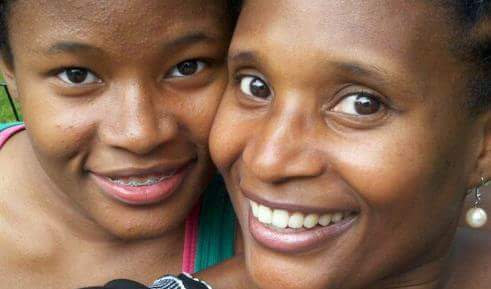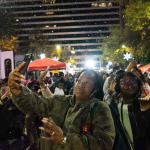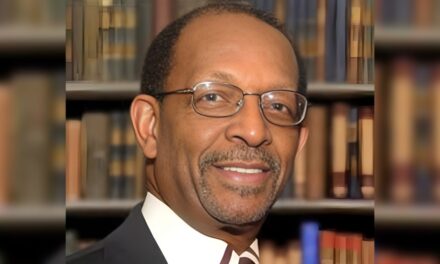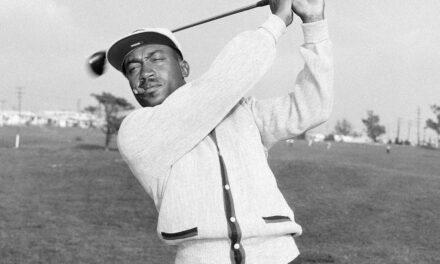By Megan Sayles
AFRO Business Writer
msayles@afro.com
Suicide is one of the leading causes of death in the U.S. and around the globe. The World Health Organization reports that 726,000 people around the world die by suicide every year. In the U.S., more than 49,000 people died by suicide in 2022, equating to one death for every 11 minutes, according to the Centers for Disease Control and Prevention (CDC).
September 10 marks World Suicide Prevention Day, and September recognizes National Suicide Prevention Month. The observations denote a time to raise awareness about the stigmatized crisis and share vital resources.

“Most people don’t realize that there are more suicides than there are murders in the United States,” said Tamara Ferebee, executive director of human services administration at the National Association of Black Counselors. “We get very upset about shootings because there’s so many, but the number of suicides far exceeds that number.”
According to the National Institute of Mental Health, in 2021, there were nearly two times as many suicides, 48,183, in the U.S. than homicides, 26,031.
Ferebee explained that mental and physical health should be treated with equal priority. She said some of the warning signs for a suicide attempt include someone talking about death, withdrawing from friends and family, saying goodbye to people, giving away their personal items, taking undue risks, eating or sleeping a lot less or more than usual and increasing their consumption of alcohol or drugs.
“One of the big ones is if they’ve been down for a while, and then, all of a sudden, they’re happy,” said Ferebee. “Usually, that’s because they’ve made the decision that they’re planning to die. They feel like their burdens are over.”
New York native Dionne C. Monsanto lost her daughter, Busisiwe Ayo Monsanto, to suicide 13 years ago. She was 15 years old at the time of her death.
Her loved ones affectionately called her, “Siwe,” for short, but her full name meant blessing and joy, which Monsanto said was a fitting description.
“She was a really active, outgoing person and very helpful. I think we were both serial helpers,” said Monsanto. “She was a dancer, reader and writer, and she played the acoustic and bass guitar. She had been on full scholarship at The Ailey School.”
At the age of four, Monsanto said her daughter would cry for long periods of time when she left Kindergarten. Her teacher said she was perfectly fine during school hours. When Monsanto sought guidance from teachers and doctors, they told her it was an adjustment period.
The crying seemed to phase out as Siwe got older, but Monsanto decided to have her tested by a doctor when she was nine.
“It came out that she was highly-intelligent, gifted and talented and had depression and anxiety disorder,” said Monsanto. “They were very matter-of-fact, saying it’s perfectly normal to have depression and anxiety disorder with her intelligence level.”
When Siwe was a teenager, Monsanto said it was a constant battle to get her to clean her room, a common struggle for parents of teens. But, before her death, Siwe cleaned her room. Monsanto saw it as a parenting win at the time.
But since her death, she’s realized it may have been a warning sign. Siwe gave her mom an $80-dress that she begged her mother to buy.
“She gave me the dress, but she didn’t say she was giving it to me. She wanted me to hold on to it. She was like, ‘Mom, you know how my room is. If I’m going to find this dress, you’ll know where it is when I want to wear it,’” said Monsanto. “That made perfect sense to me.”
Since her daughter’s death, she said she heals by talking about her and keeping her memory alive. She said she’s learned to accept the duality of life, although she sometimes has to remind herself that Siwe’s death wasn’t her fault. It’s important to Monsanto to be a part of conversations on suicide, especially for parents of color.
According to the CDC, suicide rates among Black people aged 10 to 24 have increased from 8.2 to 11.2 per 100,000, a 36.6 percent increase. Mental health has also long been a taboo topic in the Black Community.
“We do not judge anyone who has cancer. We do not judge anyone that has diabetes. We do not judge people for a broken leg,” said Monsanto. “We really have to embrace mental health in the same way as we would any other physical thing. If we talk about it, then we can collectively heal.”
If you or someone you know is struggling with thoughts of suicide, help is available. Please consult the resources below:
- 988 Suicide and Crisis Lifeline
- 741741 Crisis Text Line
- National Alliance on Mental Illness Helpline
- American Foundation for Suicide Prevention
The post Breaking the silence: Raising awareness on suicide prevention appeared first on AFRO American Newspapers.











